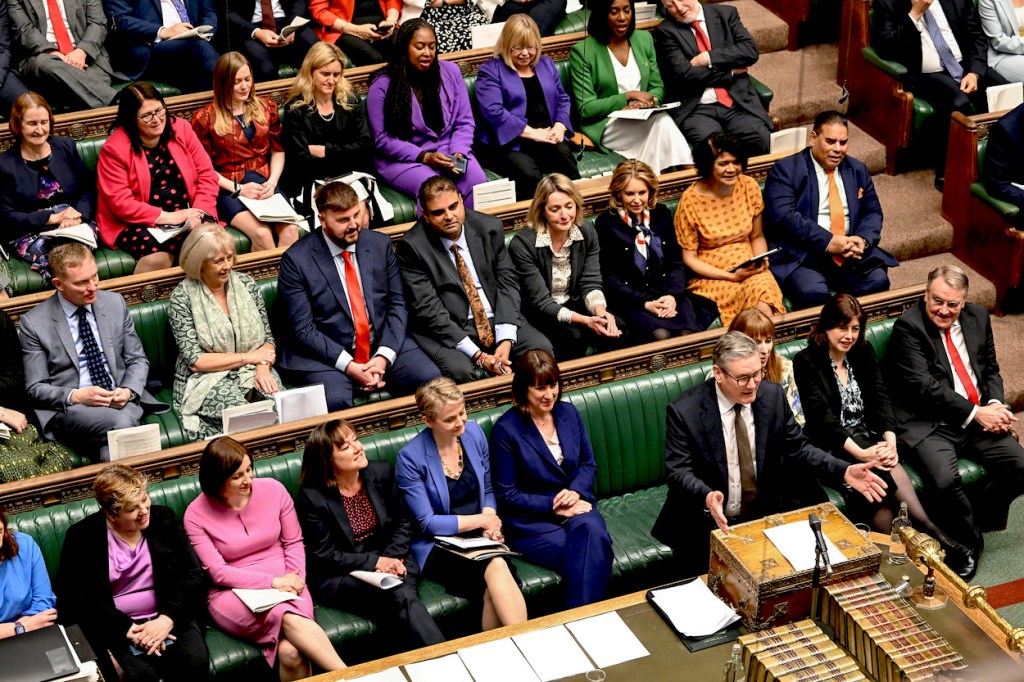Robert Ades has narrated this article for you to listen to.
‘Women are more religious because they are socialised to be obedient and passive.’
‘In Latin America, men often spend 20-40 per cent of the household’s income on alcohol, as well as further spending on tobacco, gambling and prostitutes.’
‘The Challenger space shuttle disaster in 1986 is an example of state-initiated corporate crime.’
All examples taken verbatim from the most common sociology A-level course book (by Napier Press) used by students for the AQA syllabus, the most commonly used exam board. They lack any qualifying language or citation but are presented as fact.
Social justice warriors in training are taught that science is bad ‘because it has led to pollution’
Sociology as a school subject is a soup of half-baked old-left apologist propaganda, daft pub conspiracy theories, self-defeating second-wave feminist rants and an actively denied undercurrent of western Christian superiority. More terrifying still are the generalisations about science: ‘a scientific fact is simply a social construction or belief that scientists are able to persuade their colleagues to share – not necessarily a real thing out there’. No wonder kids still leave school – not just faith schools – believing evolution is a theory…‘like religion’. Social justice warriors in training are taught that science is bad ‘because it has led to pollution’.
Due to a long-term teacher absence, I have had to take on some teaching responsibility for sociology A-level this year in my north London comp, having never studied it before. My students are mostly young Muslim women who, after two decades of ethnic pigeonholing by monitoring forms, do not describe themselves as ‘British’, but their personalities are unmistakably those of local north Londoners. As a middle-aged white man, I was obligated to teach these thoughtful and funny hijab-wearing teenagers that an academic body of knowledge has determined that their modest clothing culture repressed them, and that standing at the back in mosques was evidence of demeaning patriarchal segregation. ‘But you gotta be at the back for prayers…cos men like bums innit’, was the infinitely more worldly reply.
Not only is sociology content-weak, it is also method-poor. Take the lazy quantifier ‘often 20-40 per cent’ above, a mathematically meaningless figure which approaches parody. As Ron Burgundy might put it: ‘More than 50 per cent of the time, Latin American men are drunken whoremongers 20-40 per cent of the time.’ This statement forms part of a ‘phenomenon’ dubbed the ‘Pentecostalist Gender Paradox’: viz. why is Pentecostalism, a patriarchal religion, so popular among Latino women, when they ought to be liberating themselves from patriarchal oppression in the ‘western style’? Answer: because the poor obedient women hope the Christian patriarchy will reform their wayward husbands’ morals for the better! Maybe they haven’t been following the Catholic news for the past 400 years.
A teenager with a passion for understanding society is a precious thing. Young people are powerfully engaged in trying to understand and improve their surroundings during the short developmental window between growing out of their homes and becoming invested in the status quo. Yet their reward for showing an interest in society at an early age is to be exposed to tendentious speculative generalisations, poor methodology and flagrant falsehoods.
Most damning of all is the verdict from universities: you don’t need sociology A-level to take a sociology degree. The same goes for psychology A-level, a subject often chosen by curious and empathic young people who want to know more about themselves and help others. Since the dramatic increase of mental health diagnoses in the young (largely connected to the explosion in childhood smartphone use – a much more urgent problem), psychology has become the country’s second most popular A-level after maths and, like sociology, bizarrely it also exists as a GCSE for 14- to 16-year-olds. Yet a psychologist who has studied literature, sciences or history, or has spent time abroad learning a language when they had the chance, has more to offer than one who has studied psychology instead. Some subjects are suitable only when students have broader knowledge and are capable of understanding nuance and tolerating ambiguity. Art history falls into the same category: these subjects belong at degree level but not at school.
Sociology is not even the least useful A-level. Communications, business, media/TV, and management and administration are also astonishingly popular. There is an important role for the new T-levels here, replacing BTECs: vocational subjects for students to get on to functional training courses and join the workforce quicker. These could be expanded and the outcomes supported, showing that as a society we respect work and not just academia, giving more pupils the opportunity to start their careers earlier and earn a living, rather than be encouraged back into the classroom beyond 16 to spend time and energy on pseudo-academic subjects that will not benefit anyone.

At root it’s about economics. Schools make money per pupil, and they attract pupils by offering popular courses. They use exam boards which both produce and validate the syllabi. Their role is comparable to that of the credit-rating agencies in the mortgage crisis of 2008: it is in the exam boards’ interests to validate the most popular subjects however unsuitable or weak they are. Like investment managers, the schools earn more from passing on these ‘validated’ tranches of study to the consumer, namely the child. Schools and exam boards would earn the most from offering curricula in social media and online gaming, and no doubt they soon will.
Schools must be clear with their students: if they are passionate about a certain subject and want to study it for their degree, but universities don’t require the A-level for that subject, then they would do best to stick with the classic core subjects: literature, history, arts, languages, maths and the sciences.







Comments